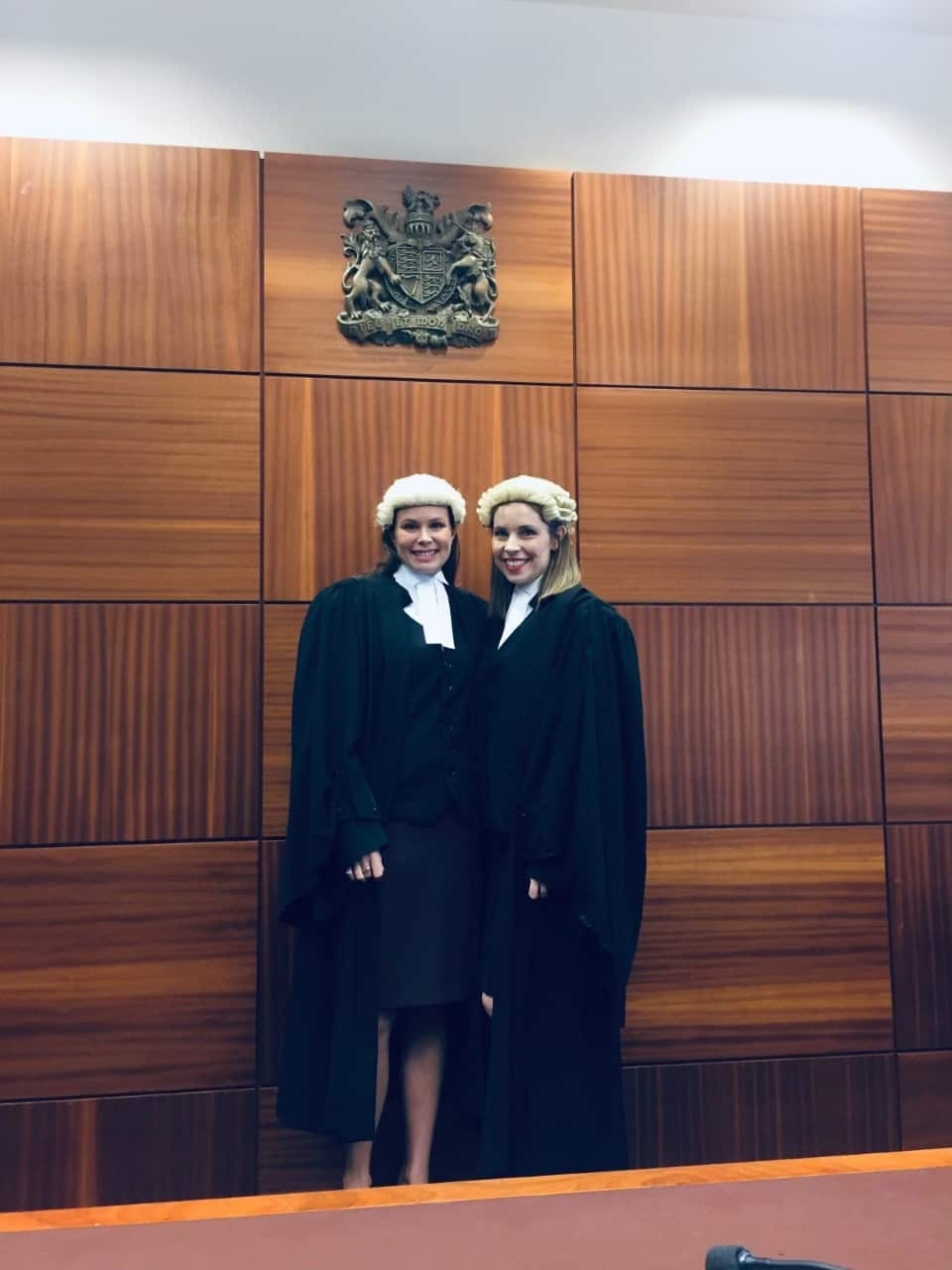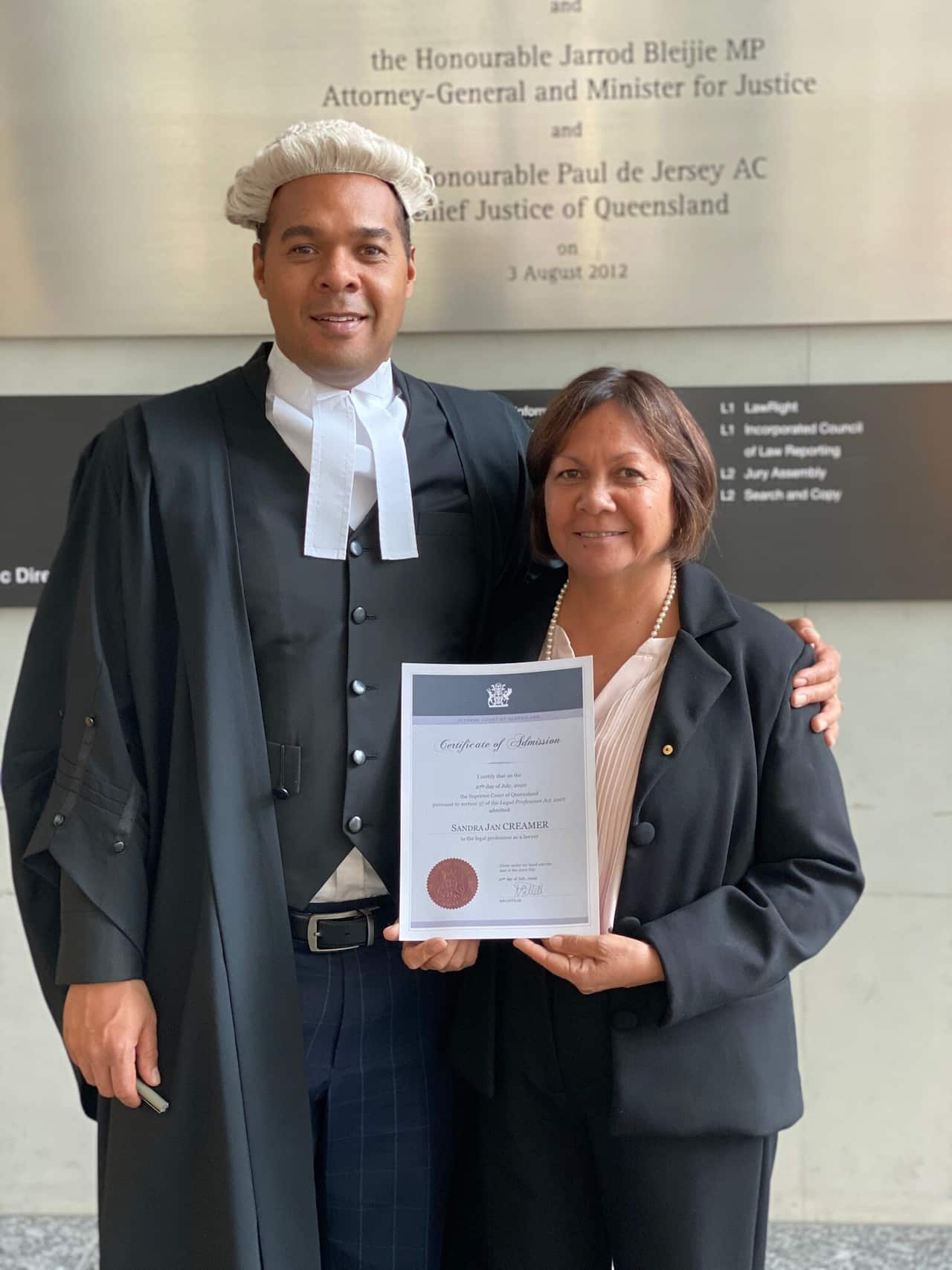In a NAIDOC week special, Insight explores the difference mentors can make for First Nations people and communities, through the eyes of some deadly high-achievers. Simulcast on SBS and NITV at 8.30pm, Thursday Nov. 12, and on SBS On Demand.
When 32-year-old Melia Benn was admitted to the Queensland Bar two years ago, becoming one of Australia’s few Indigenous female barristers, she couldn’t quite believe it was real.
“I do definitely suffer from imposter syndrome,” the Cairns-based, Mamu and Gunggandji woman told SBS Insight.
With only about 20 barristers out of 6,000 across Australia being Indigenous, Benn is blazing her own path; from a disadvantaged childhood, to the bar.
Brought up by her single mother, her family had escaped an alcohol and violence-affected domestic environment.
“Life growing up was challenging at times. From a really young age I realised that in the law you can help people,” Benn said.

Melia, left, admits she gets "imposter syndrome" but is determined to break the gender and culture imbalance at the bar. Source: Supplied
Melia was mentored by Joshua Creamer, the first Indigenous barrister she had ever met, when he did a session at the bar course. Creamer, 38, and Benn still check in with each other a few times a week.
“Indigenous people are over-represented in all the areas of law that you just don’t want to be over-represented in; incarceration, suicide, crime,” Creamer, a Waanyi and Kalkadoon man, told Insight. “And we are seriously under-represented in that area of (legal) professionals.”
“We need Indigenous lawyers, we need Indigenous judges.”
Associate Professor, Christopher Lawrence, who works at the University of Technology Sydney, agrees with Benn that imposter syndrome among Indigenous Australians is a thing.

Barrister at Law, Joshua Creamer stands next to his mother Sandra Creamer after admitting her to the Queensland Supreme Court on 27 July. Source: Supplied (Joshua Creamer)
“If I had a dollar for every time I was told I wasn’t good enough, or an Indigenous kid isn’t good enough, I’d be a wealthy man,” the 54 year-old Noongar man, who was born a non-citizen, said. “Indigenous kids can internalise that. They can lose sight, lose their own belief.”
Associate Professor Lawrence’s mission is to send the first Indigenous Australian astronaut into space. He has set up a partnership with NASA, paving the way for Indigenous students to be interns at the space agency.
“We shouldn’t be scared about daring mighty things,” he told Insight. “Having (First Nations people) there at NASA, it’s an incredible opportunity to showcase to others that they too can claim the universe.”
Share
Insight is Australia's leading forum for debate and powerful first-person stories offering a unique perspective on the way we live. Read more about Insight
Have a story or comment? Contact Us


